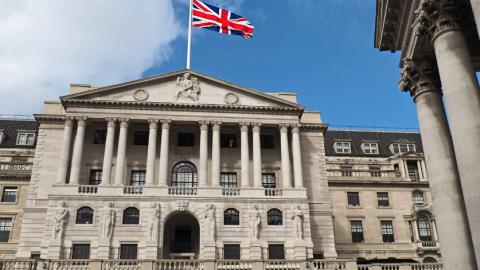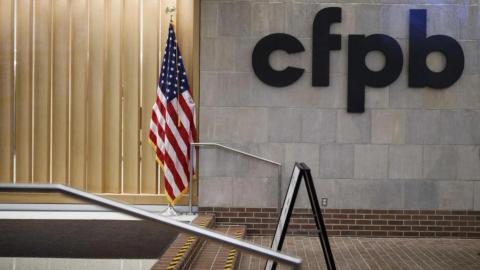
Similar Posts

PSR Faces Criticism for ‘Failure of Vision’ in Addressing Card Scheme Fee Remedies
The Payment Systems Regulator (PSR) is consulting on increasing transparency in card payment fees for merchants and acquirers, following a market review that revealed Visa and Mastercard raised fees by over 25% from 2017 to 2023, costing UK businesses at least £170 million annually. Key findings include significant fee increases, lack of clarity in fee structures, and a need for regulatory action. Proposed measures aim to enhance transparency and pricing governance. However, the British Retail Consortium criticized these proposals as insufficient, urging the PSR to implement stronger interventions and a long-term price cap to protect businesses.

Bank of England Warns: AI’s Impact on Financial Stability Under Scrutiny
As global investments in artificial intelligence (AI) surge, regulators are working to balance innovation with risk management. The Financial Policy Committee highlights several risks, including data flaws, correlated positions among firms, and systemic vulnerabilities from reliance on a few AI vendors. Such dependencies could lead to operational failures during crises, impacting essential services. AI also poses cybersecurity threats, benefiting both banks and malicious actors. To navigate these challenges, the committee stresses the importance of monitoring AI-related risks to determine necessary safeguards, emphasizing collaboration between innovators and regulators for safe and effective AI development.

Exploring Future Tokenized Markets: BIS and NY Fed Analyze Policy Implications
Project Pine is an initiative that investigates how central banks can use programmable smart contracts for policy implementation, focusing on tokenization in wholesale payments and securities settlement. A prototype toolkit for tokenized monetary policy has been developed, meeting key requirements from the Bank for International Settlements (BIS) and the Federal Reserve, such as managing collateral and interest on reserves. Rigorous testing against various market scenarios showed that the toolkit effectively responds to changing conditions. Future research will focus on interoperability and data standardization, suggesting that Project Pine could enhance the efficiency of monetary policy in the global financial system.

FCA Seeks Public Opinion on Eliminating £100 Contactless Payment Limit: Share Your Thoughts!
The Financial Conduct Authority (FCA) is considering removing the contactless payment limit in the UK to enhance consumer choice, provide merchants with greater flexibility, and boost economic growth. This review follows a proposal from January and aims to improve purchasing experiences by allowing larger transactions. The FCA suggests that less restrictive regulations could foster innovation in payment methods and fraud prevention. Support from Economic Secretary Emma Reynolds highlights the initiative’s potential benefits for families. Stakeholders are invited to share feedback on the proposed changes by May 9, marking an important opportunity for public input on the future of contactless payments.

CFPB Plans to Abandon BNPL Regulations: What It Means for Consumers and the Future of Buy Now, Pay Later
In October, the Financial Technology Association (FTA) filed a lawsuit against the new Buy Now, Pay Later (BNPL) rule to safeguard consumers and BNPL providers. Recently, both the FTA and the Consumer Financial Protection Bureau (CFPB) sought a stay in the case as the CFPB plans to revoke the rule, which could moot the lawsuit. The proposed rule aimed to impose traditional credit card protections on BNPL products, raising concerns about consumer confusion. FTA CEO Penny Lee criticized the CFPB for exceeding its authority. Additionally, the CFPB has seen operational shifts under acting Director Russell Vought since 2020.

PSR Faces Criticism for ‘Failure of Vision’ in Addressing Card Scheme Fee Remedies
The Payment Systems Regulator (PSR) is consulting on increasing transparency in card payment fees for merchants and acquirers, following a market review that revealed Visa and Mastercard raised fees by over 25% from 2017 to 2023, costing UK businesses at least £170 million annually. Key findings include significant fee increases, lack of clarity in fee structures, and a need for regulatory action. Proposed measures aim to enhance transparency and pricing governance. However, the British Retail Consortium criticized these proposals as insufficient, urging the PSR to implement stronger interventions and a long-term price cap to protect businesses.

Bank of England Warns: AI’s Impact on Financial Stability Under Scrutiny
As global investments in artificial intelligence (AI) surge, regulators are working to balance innovation with risk management. The Financial Policy Committee highlights several risks, including data flaws, correlated positions among firms, and systemic vulnerabilities from reliance on a few AI vendors. Such dependencies could lead to operational failures during crises, impacting essential services. AI also poses cybersecurity threats, benefiting both banks and malicious actors. To navigate these challenges, the committee stresses the importance of monitoring AI-related risks to determine necessary safeguards, emphasizing collaboration between innovators and regulators for safe and effective AI development.

Exploring Future Tokenized Markets: BIS and NY Fed Analyze Policy Implications
Project Pine is an initiative that investigates how central banks can use programmable smart contracts for policy implementation, focusing on tokenization in wholesale payments and securities settlement. A prototype toolkit for tokenized monetary policy has been developed, meeting key requirements from the Bank for International Settlements (BIS) and the Federal Reserve, such as managing collateral and interest on reserves. Rigorous testing against various market scenarios showed that the toolkit effectively responds to changing conditions. Future research will focus on interoperability and data standardization, suggesting that Project Pine could enhance the efficiency of monetary policy in the global financial system.

FCA Seeks Public Opinion on Eliminating £100 Contactless Payment Limit: Share Your Thoughts!
The Financial Conduct Authority (FCA) is considering removing the contactless payment limit in the UK to enhance consumer choice, provide merchants with greater flexibility, and boost economic growth. This review follows a proposal from January and aims to improve purchasing experiences by allowing larger transactions. The FCA suggests that less restrictive regulations could foster innovation in payment methods and fraud prevention. Support from Economic Secretary Emma Reynolds highlights the initiative’s potential benefits for families. Stakeholders are invited to share feedback on the proposed changes by May 9, marking an important opportunity for public input on the future of contactless payments.

CFPB Plans to Abandon BNPL Regulations: What It Means for Consumers and the Future of Buy Now, Pay Later
In October, the Financial Technology Association (FTA) filed a lawsuit against the new Buy Now, Pay Later (BNPL) rule to safeguard consumers and BNPL providers. Recently, both the FTA and the Consumer Financial Protection Bureau (CFPB) sought a stay in the case as the CFPB plans to revoke the rule, which could moot the lawsuit. The proposed rule aimed to impose traditional credit card protections on BNPL products, raising concerns about consumer confusion. FTA CEO Penny Lee criticized the CFPB for exceeding its authority. Additionally, the CFPB has seen operational shifts under acting Director Russell Vought since 2020.

PSR Faces Criticism for ‘Failure of Vision’ in Addressing Card Scheme Fee Remedies
The Payment Systems Regulator (PSR) is consulting on increasing transparency in card payment fees for merchants and acquirers, following a market review that revealed Visa and Mastercard raised fees by over 25% from 2017 to 2023, costing UK businesses at least £170 million annually. Key findings include significant fee increases, lack of clarity in fee structures, and a need for regulatory action. Proposed measures aim to enhance transparency and pricing governance. However, the British Retail Consortium criticized these proposals as insufficient, urging the PSR to implement stronger interventions and a long-term price cap to protect businesses.

